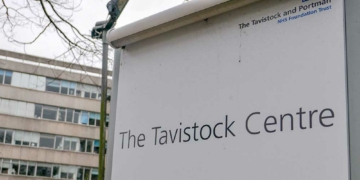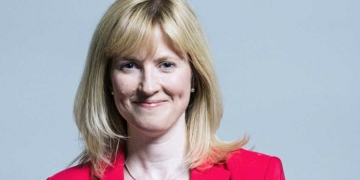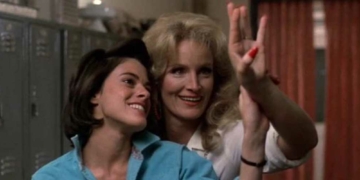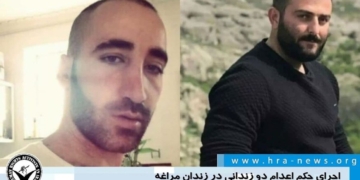Harry Miller and his organisation “Fair Cop” pulled off a stunning victory in the Civil Division of the Court of Appeal on 20th December securing a powerful judgment which effectively renders the modern recording of “non-crime hate incidents” by police forces unlawful. Upholding the Appellant’s case on two of the five grounds advanced (proportionality and interference with a human right), the President of the Queen’s Bench Division, Dame Victoria Sharpe, found the recording framework “extraordinarily broad” and far too easily triggered to be lawful ruling that “The threshold for hostility is low (it can include ill-will, ill-feeling, spite, contempt, prejudice, unfriendliness, antagonism, resentment and dislike)”. Drawing attention to the danger of modern “non-crime hate incidents” being recorded against persons simply exercising freedom of speech the court held that “the Guidance contemplates on its face, the recording by the police of incidents as non-crime hate incidents, which are, to put it shortly, non-crime non-hate incidents”.
Miller’s case was heard on Appeal from the first instance Judicial Review before Mr Justice Knowles (judgment available here) and centred around his lawful use of Twitter to engage in the public debate on gender critical/trans views. A series of his tweets were reported to the police who attended his place of work to effectively warn him off participating in public debate. Deprecating this approach to “non-crime hate incidents” the first instance Judge found that such actions “led [Mr Miller], reasonably, to believe that he was being warned not to exercise his right to freedom of expression about transgender issues on pain of potential criminal prosecution”, without the police ever explaining “on what basis they thought that the tweets could ‘escalate’ to a criminal offence”. The judge also found that there was “not a shred of evidence that [Mr Miller] was at risk of committing a criminal offence”. The first instance Miller case was pursued on two broad bases, first that the recording of the tweets as “non-crime hate incidents” was unlawful and second that the recording more generally as against other persons were. In a judgment halfway between those positions, the first instance court ruled the recording of tweets could remain as not breaching Article 10 freedom of expression, but that a marker be added to the relevant file recording the opinion of the High Court that the tweets in combination with the warning by officers, did so.
Reversing this ruling, The President of the Queen’s Bench Division held that the “non-crime hate incident” guidance did constitute an interference with the Article 10 freedom of expression ruling and that the application thereof had a “chilling effect” on freedom of speech. Developing the theme, the President ruled “The concept of a chilling effect in the context of freedom of expression is an extremely important one. It often arises in discussions about what if any restrictions on journalistic activity are lawful; but in my judgment it is equally important when considering the rights of private citizens to express their views within the limits of the law, including and one might say in particular, on controversial matters of public interest”. Looking to the particular public issue at stake the court noted how often and how flimsy some accusations of hate made are, ruling “Professor Stock’s evidence demonstrates how quickly some involved in the transgender debate are prepared to accuse others with whom they disagree of showing hatred, or as being transphobic when they are not but simply hold a different view”.
Again, referring to Professor Kathleen Stock’s evidence, the President went on to identify Mr Miller as being a member of a group of people who might easily be stigmatised by virtue of “gender critical” beliefs. The Court drew attention to the disclosure of “non-crime hate incidents” by the police to third parties as a result of enhanced DBS (Disclosure and Barring Service) checks and the danger that incidents which simply constituted a lawful exercise of freedom of speech may be so disclosed. Pointing out the original “non-crime hate incidents” guidance dated from the McPherson Report of February 1999, the Court commented that the intention, political climate and comparative explosion in social media incidents all made for crucial differences as to the culture of recording incidents compared to 1999. In an echo of the Law Commission’s proposed statutory “carve out” for gender critical views to protect persons from “activists” keen to test the limits of the law, the court repeated the observation as to some complaints in this case being at “the outer limit of rationality”.
The response by the College of Policing to the judgment will be interesting and important. Having reviewed and revised their guidance following the first instance judicial review the President commented that the attempts to meet the criticisms of that court “do not go very far, or not nearly far enough to address the chilling effect of perception-based recording more generally.” The revised guidance will likely be crucial as the judgment of the Court of Appeal came in the wake of permission to “leapfrog” to the Supreme Court having been refused, such as Monday’s ruling is likely to be the final judicial word on the matter for a time. Whatever happens, the appeal in Miller now undoubtedly takes its place alongside the appeal in Forstater as the two most important and game-changing cases in the field of freedom of speech in the fraught gender critical debate. If the effect of Forstater is to protect beliefs at work, Miller looks as though it will protect such beliefs from the police.
Dennis Kavanagh is a legal commentator and barrister (non-practising).
Dennis blogs about LGBT issues and law here
Photo: PA Images/Alamy Stock Photo
























Comments
No comments yet, be the first to leave a comment.